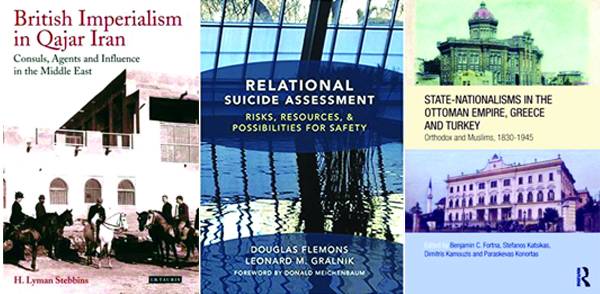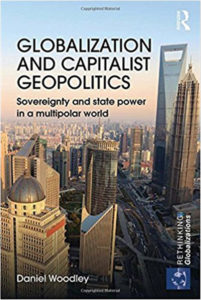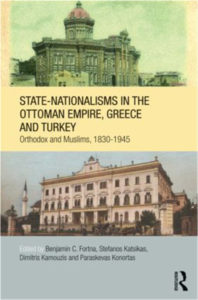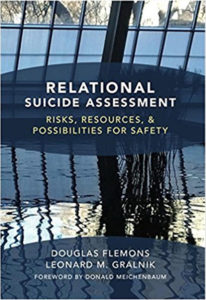

Globalization and Capitalist Geopolitics: Sovereignty and state power in a multipolar world
Daniel Woodley
Routledge (2015)
Rs13,829
Globalization and Capitalist Geopolitics is concerned with the nature of corporate power against the backdrop of the decline of the West and the struggle by non-western states to challenge and overcome domination of the rest of the world by the West. This book argues that although the US continues to preside over a quasi-imperial system of power based on global military preponderance and financial statecraft, and remains reluctant to recognize the realities global economic convergence, the age of imperial state hegemony is giving way to a new international order characterized by capitalist sovereignty and competition between regional and transnational concentrations of economic power.
This title seeks to interrogate the structure of world order by examining leading approaches to globalization and political economy in international relations and international political economy. Breaking with the classical school, Woodley argues that geopolitics should be understood as a transnational strategic practice employed by powerful state actors, which mirrors predatory corporate rivalry for control over global resources and markets, reproducing the structural conditions for corporate power through the transnational state form of capital.
In a period of increasing geopolitical insecurity and economic instability this title provides an authoritative yet accessible commentary on debates on capitalism and globalization in the wake of the financial crisis. It is valuable resource for students and scholars seeking to develop a deeper understanding of the historical determinants of the changing dynamics of neoliberal capitalism and their implications for world order.
Daniel Woodley teaches politics at DLD College in London. He is the author of numerous articles and textbooks on ideology and political theory, including Fascism and Political Theory (2010), also published by Routledge.

Political Marketing: Theoretical and Strategic Foundations
Bruce I. Newman, Wojciech Cwalina
Routledge (2015)
Rs4,715
Political Marketing: Theoretical and Strategic Foundations is the first comprehensive, integrated theory-to-practice text on this important subject. With insights and concepts drawn from the disciplines of Marketing, Psychology, and Political Science, this book covers every aspect of marketing’s infiltration into the political process, including campaign strategy, market segmentation, and media strategy. The book is global in scope, with many examples and models drawn from countries around the world.
Marketing’s role in the political process does not go unquestioned in this book. The authors present the importance of political marketing techniques for the stability of democratic institutions, and also note the potential threats to democracy, especially the use of marketing techniques to manipulate voters at the subconscious level. They conclude with a set of normative “do’s and don’ts” for political marketing practice that strengthens civic education and democratic governance

British Imperialism in Qajar Iran: Consuls, Agents and Influence in the Middle East
Lyman Stebbins
I.B.Tauris & Co Ltd (2017)
Rs10,602
In 1888, there were just four British consulates in the country; by 1921 there were twenty-three. H. Lyman Stebbins investigates the development and consequences of British imperialism in Iran in a time of international rivalry, revolution and world war. While previous narratives of Anglo-Iranian relations have focused on the highest diplomatic circles in Tehran, London, Calcutta and St. Petersburg, this book argues that British consuls and political agents made the vast southern borderlands of Iran the real centre of British power and influence during this period. Based on British consular archives from Bushihr, Shiraz, Sistan and Muhammarah, this book reveals that Britain, India and Iran were linked together by discourses of colonial knowledge and patterns of political, military and economic control. It also contextualizes the emergence of Iranian nationalism as well as the failure and collapse of the Qajar state during the Iranian Constitutional Revolution and the First World War.
Lyman Stebbins is Assistant Professor of History at La Salle University, Philadelphia. He holds a PhD from the University of Chicago.

State-Nationalisms in the Ottoman Empire, Greece and Turkey; Orthodox and Muslims, 1830-1945
Eds Benjamin C. Fortna, Stefanos Katsikas, Dimitris Kamouzis, Paraskevas Konortas
Routledge (2013)
Rs13,061
Tracing the emergence of minorities and their institutions from the late nineteenth century to the eve of the Second World War, this book provides a comparative study of government policies and ideologies of two states towards minority populations living within their borders.
Making extensive use of new archival material, this volume transcends the tendency to compare the Greek-Orthodox in Turkey and the Muslims in Greece separately and, through a comparison of the policies of the host states and the operation of the political, religious and social institutions of minorities, demonstrates common patterns and discrepancies between the two countries that have previously received little attention.
A collaboration between Greek and Turkish scholars with broad ranging research interests, this book benefits from an international and balanced perspective, and will be an indispensable aid to students and scholars alike.
Benjamin Fortna is Professor of the History of the Middle East at SOAS, University of London.
Stefanos Katsikas is currently Director of the Modern Greek Studies Program at the University of Illinois at Urbana-Champaign.
Dimitris Kamouzis works on the history of Greece and Turkey at the Centre for Asia Minor Studies in Athens
Paraskevas Konortas is a professor in the school of philosophy at the University of Athens.

Relational Suicide Assessment: Risks, Resources, and Possibilities for Safety
Douglas Flemons, Leonard M. Gralnik
W. W. Norton & Co (2013)
Rs4,360
Given the isolating nature of suicidal ideation and actions, it’s all too easy for clinicians conducting a suicide assessment to find themselves developing tunnel vision, becoming overly focused on the client’s individual risk factors. Although critically important to explore, these risks and the danger they pose can’t be fully appreciated without considering them in relation to the person’s resources for safely negotiating a pathway through his or her desperation. And, in turn, these intrapersonal risks and resources must be understood in context?in relation to the interpersonal risks and resources contributed by the client’s significant others.
In this book, Drs. Douglas Flemons and Leonard M. Gralnik, a family therapist and a psychiatrist, team up to provide a comprehensive relational approach to suicide assessment. The authors offer a Risk and Resource Interview Guide as a means of organizing assessment conversations with suicidal clients. Drawing on an extensive research literature, as well as their combined 50+ years of clinical experience, the authors distill relevant topics of inquiry arrayed within four domains of suicidal experience: disruptions and demands, suffering, troubling behaviors, and desperation.
Knowing what questions to ask a suicidal client is essential, but it is just as important to know how to ask questions and how to join through empathic statements. Beyond this, clinicians need to know how to make safety decisions, how to construct safety plans, and what to include in case note documentation. In the final chapter, an annotated transcript serves to tie together the ideas and methods offered throughout the book.
Relational Suicide Assessment provides the theoretical grounding, empirical data, and practical tools necessary for clinicians to feel prepared and confident when engaging in this most anxiety-provoking of clinical responsibilities.
Douglas Flemons, PhD, LMFT, is Professor of Family Therapy and Co-Director of the Office of Suicide and Violence Prevention at Nova Southeastern University in Fort Lauderdale, Florida.
Leonard M. Gralnik, MD, PhD, is an adult and child psychiatrist and lives in Hollywood, Florida.

